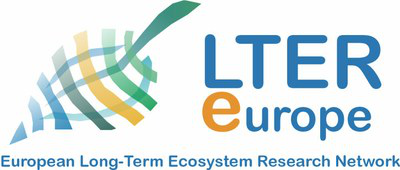
EU BON has signed memoranda of understanding with almost thirty institutions and projects from across Europe and outside to state its desire for collaboration and exchange of expertise. Among the early partners in this list is the LTER-Europe group, focussed on the integration of scientific research and ecosystem research approaches, including the human dimension.
Dr. Mark Frenzel who took part in the EU BON Third Stakeholder roundtable in December 2015, gives an overview of his impressions from the meeting as well as his ideas on the co-work between LTER-Europe and EU BON.

Credit: Florian Wetzel
Q: The LTER-Europe network looks at conceptualizing Long-Term Ecosystem Research (LTER) as an essential component of world-wide efforts to better understand ecosystems. How is the network planning to achieve this?
 A: This is / will be achieved mainly by funded project work. Actually the H2020 eLTER project is the most important backbone, an ESFRI eLTER initiative is running too. In terms of content there are several challenges which need to be addressed: (1) Harmonisation in terms of what and how is being measured at LTER sites, (2) collection and representation of metadata about sites, actors and data sets within the web tool DEIMS, (3) open access of data and DOI registration of data sets, (4) considering the human component as a major driver for changes in ecosystems by including socio-economy and socio-ecology in the LTER approach.
A: This is / will be achieved mainly by funded project work. Actually the H2020 eLTER project is the most important backbone, an ESFRI eLTER initiative is running too. In terms of content there are several challenges which need to be addressed: (1) Harmonisation in terms of what and how is being measured at LTER sites, (2) collection and representation of metadata about sites, actors and data sets within the web tool DEIMS, (3) open access of data and DOI registration of data sets, (4) considering the human component as a major driver for changes in ecosystems by including socio-economy and socio-ecology in the LTER approach.
Q: How would EU BON and its planned European biodiversity portal be beneficial to LTER-Europe and its aims in the next years?
A: Biodiversity is not the only, but an important focus within LTER. It depends on the services and benefits connected with this portal and its long-term perspective. The most important added value I would see in an elaborated framework-based agreement on the set of "essential biodiversity variables" which will be a compromise between importance and feasibility. This selection process should be well tuned with the relevant players in this field.
Q: The LTER-Europe network includes several hundreds of sites that are collecting large amounts of data – how can this data be used for improving our knowledge of biodiversity, particularly for policy-relevant questions?
A: The big advantage (and potential) of LTER-Europe sites is the coverage in terms of geography and bioms, the general shortcoming is in the heterogeneous reasons why these sites have been set up (e.g. for monitoring air pollution) and that there is no targeted funding (in terms of a specific research question) for all sites.
Not all sites are dealing with biodiversity data. First, suitable sites need to be selected according to metadata in DEIMS (https://data.lter-europe.net/deims/). Second, data sets according to fitting topics have to be compiled (perhaps no easy task, as datasets up to now are not exhaustively documented). Site managers of representative sites (depending on the question to be addressed) could be motivated to create a common standardised data sets (needs external funding depending on the resources necessary for the task or at least a very attractive research question) responding to e.g. policy needs. Moreover, the long-term knowledge of site coordinators about the development and the important drivers of change at their sites (e.g. by assessing ecosystem services) comprises valuable meta information about the context of data sets.
Data obtained from the sites could potentially help with policy-relevant questions like status of endangered species or status of ecosystem service relevant system parameters which could be extracted from LTER sites.
Q: According to you what are the next three most urgent step in order to achieve better understanding of ecosystem services and their benefits for policy, economics and society?
A: (1) reliable data and suitable scale of data, (2) understanding the effect of scale on ecosystem services, (3) make use of large networks to approach this issue, bring the results down to a scale understandable for the layman.
About LTER-Europe:
Long-Term Ecosystem Research (LTER) is an essential component of world-wide efforts to better understand ecosystems. LTER contributes to the knowledge base informing policy and to the development of management options in response to the Grand Challenges under Global Change. From the beginning (around 2003) the design of LTER-Europe has focussed on the integration of natural sciences and ecosystem research approaches, including the human dimension. LTER-Europe was heavily involved in conceptualizing socio-ecological research (LTSER). As well as LTER Sites, LTER-Europe features LTSER Platforms, acting as test infrastructures for a new generation of ecosystem research across European environmental and socio-economic gradients.





 RSS news
RSS news Print this article
Print this article
